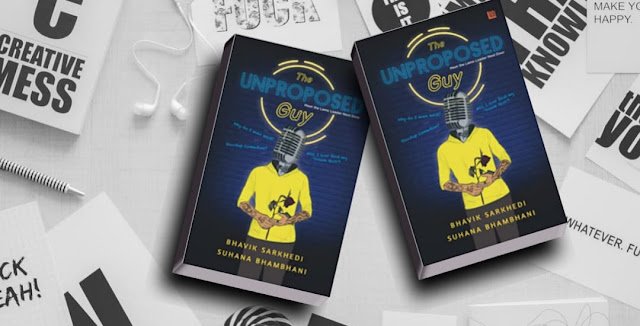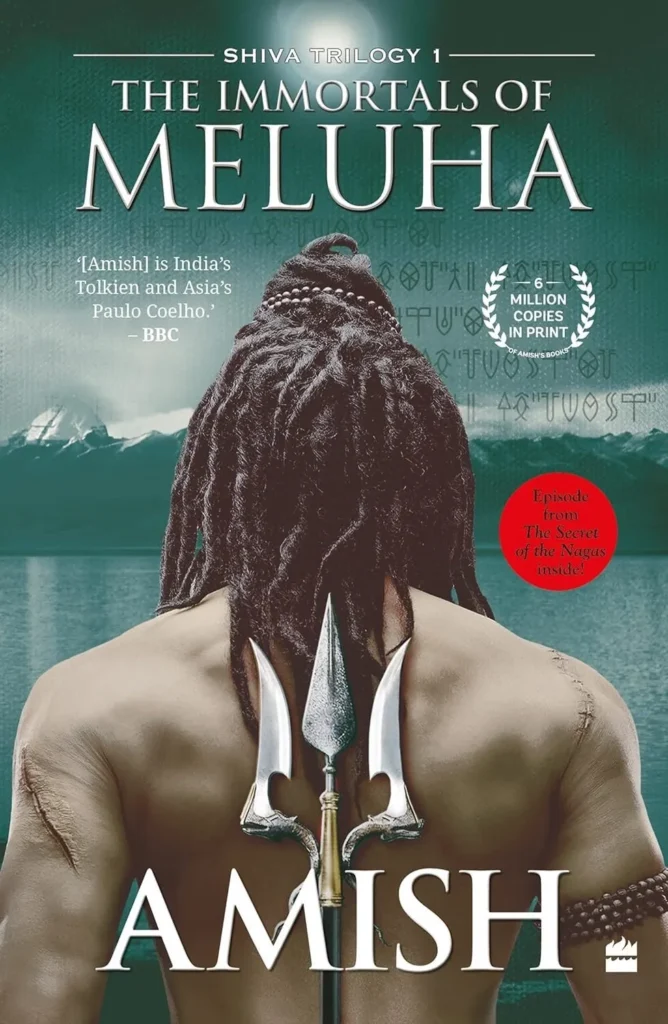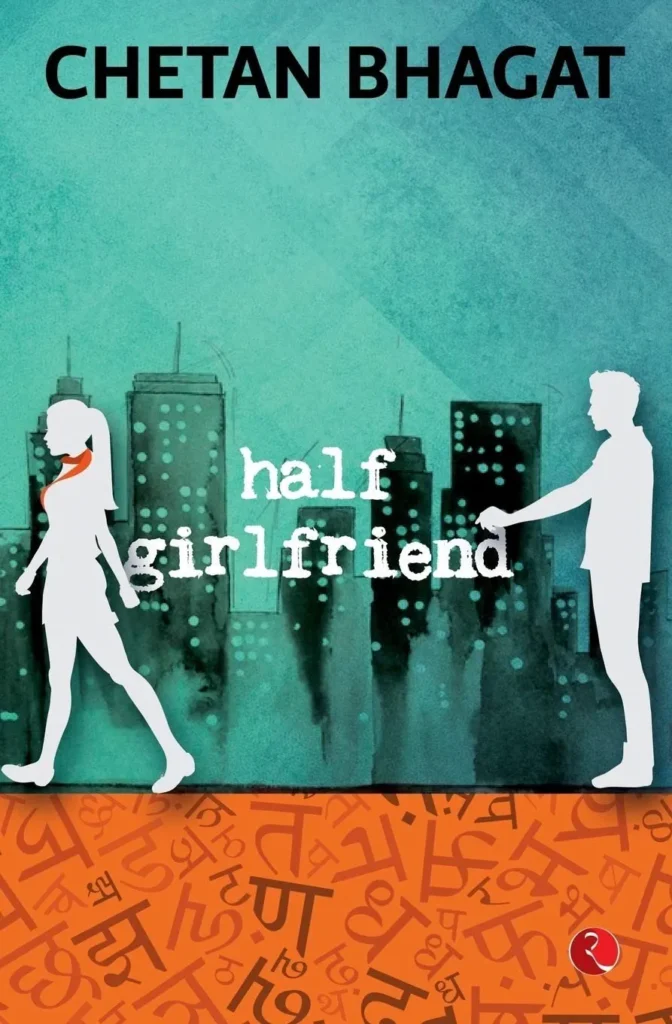Updated/Edited on 28th June, 2024: This is one of the most-read blogs on my website. Thank you so much for showing so much love to this post. I feel grateful (Joining Hands Indian Style). I am an independent verified SEO writer, best-selling author, reliable ghostwriter and personal branding expert who helps entrepreneurs and startups nurture their online/digital presence. Guaranteed results in SERP (Search Engine Results Page). Lead Generator via LinkedIn. See my portfolio here and follow me on socials: www.linktr.ee/sarkhedibhavik Thank you. Because of your love to my reading, I have been featured in The New York Times, Forbes, Entrepreneur, Huffingtonpost and my work got a humble place in The Quint, Times of India, DNA. Keep reading informational blogs. Keep sharing. Reach out to me for any feedbacks and suggestions on content writing, personal branding and digital marketing 🙂 🙂 I am all ears. Also, I do 1:1 consultation if you are interested
___________________________________________________________________________________________________________
When you think Indian book writing and reading culture, you step into a world rich with literature that spans generations, reflecting the diversity and complexity of the Indian subcontinent.
From the vibrant colors of its landscapes to the intricate threads of its cultural tapestry, Indian literature offers a unique perspective on the human experience.
Exploring Indian authors reveals a diverse array of voices, each with its own unique perspective and storytelling tradition. From the timeless wisdom of Salman Rushdie to the contemporary narratives of Arundhati Roy, Indian authors have enchanted readers worldwide with their ability to weave complex plots, evoke powerful emotions, and provoke profound questions.
Indian literature, encompassing a wide range of genres and themes, offers something for every reader. Whether it’s the epic mythology of Devdutt Pattanaik or the stark realism of Mulk Raj Anand, Indian books traverse borders and cultures, inviting readers into worlds both familiar and unfamiliar.
In India, reading is not merely a pastime but a cherished tradition that is deeply ingrained in society.
From bustling street markets to quiet bookstores, the love for storytelling permeates every corner of Indian life, fostering empathy, understanding, and connection among readers.
Indian writing is more than just words on a page; it is a celebration of the human spirit, an ode to the power of imagination, and a testament to the enduring legacy of storytelling. Why should everyone in the world read Indian books?
Because they offer a window into a world that is as diverse as it is enchanting, as profound as it is illuminating, and as timeless as it is relevant.
Top 50 Famous Indian Authors and Their Best-Selling Books
| Author | Notable Books |
| Bhavik Sarkhedi | The Unproposed Guy, Will You Walk A Mile |
| R.K. Narayan | Malgudi Days, The Guide |
| Arundhati Roy | The God of Small Things, The Ministry of Utmost Happiness |
| Vikram Seth | A Suitable Boy, An Equal Music |
| Salman Rushdie | Midnight’s Children, The Satanic Verses |
| Jhumpa Lahiri | Interpreter of Maladies, The Namesake |
| Chetan Bhagat | Five Point Someone, 2 States |
| Ruskin Bond | The Room on the Roof, Rusty, the Boy from the Hills |
| Amish Tripathi | The Immortals of Meluha, The Secret of the Nagas |
| Sudha Murthy | Wise and Otherwise, The Old Man and His God |
| Durjoy Datta | Of Course, I Love You!, You Were My Crush! |
| Khushwant Singh | Train to Pakistan, The Company of Women |
| Devdutt Pattanaik | Jaya: An Illustrated Retelling of the Mahabharata, Myth = Mithya |
| Ashwin Sanghi | The Rozabal Line, Chanakya’s Chant |
| Preeti Shenoy | Life is What You Make It, The Secret Wish List |
| Anuja Chauhan | The Zoya Factor, Those Pricey Thakur Girls |
| Twinkle Khanna | Mrs Funnybones, The Legend of Lakshmi Prasad |
| Anita Desai | Clear Light of Day, Fire on the Mountain |
| Shashi Tharoor | The Great Indian Novel, Inglorious Empire |
| Vikram Chandra | Sacred Games, Red Earth and Pouring Rain |
| Kiran Desai | The Inheritance of Loss, Hullabaloo in the Guava Orchard |
| Jeet Thayil | Narcopolis, The Book of Chocolate Saints |
| Kiran Nagarkar | Cuckold, Ravan & Eddie |
| Raja Rao | Kanthapura, The Serpent and the Rope |
| Manu Joseph | Serious Men, The Illicit Happiness of Other People |
| Upamanyu Chatterjee | English, August, The Last Burden |
| Jerry Pinto | Em and the Big Hoom, Murder in Mahim |
| Jharna Das | Aleek Shukh, Monomohonar |
| Kamala Das | My Story, Summer in Calcutta |
| G. D. Madgulkar | Laxmibai, Irawati |
| Amrita Pritam | Pinjar, Raseedi Ticket |
| Mulk Raj Anand | Untouchable, Coolie |
| Premchand | Godan, Gaban |
| Mahasweta Devi | Mother of 1084, Breast Stories |
| Sarat Chandra Chattopadhyay | Devdas, Parineeta |
| Bankim Chandra Chattopadhyay | Anandamath, Durgeshnandini |
| Bibhutibhushan Bandyopadhyay | Pather Panchali, Aranyak |
| Kazi Nazrul Islam | Bidrohi, Dolonchampa |
| Sunil Gangopadhyay | Shei Shomoy, Prothom Alo |
| Shankha Ghosh | Adim Lata, Murkho Boro Na Shib Boro Na |
| Mahadevi Varma | Yama, Rashmirathi |
| Harivansh Rai Bachchan | Madhushala, Agneepath |
| Kuvempu | Sri Ramayana Darshanam, Malegalalli Madumagalu |
| S. L. Bhyrappa | Vamshavruksha, Parva |
| Masti Venkatesha Iyengar | Samskara, Bhava |
| K. Shivaram Karanth | Mookajjiya Kanasugalu, Alida Meena |
| J. R. R. Tolkien | The Hobbit, The Lord of the Rings |
| C. S. Lewis | The Chronicles of Narnia, Mere Christianity |
| Enid Blyton | Famous Five series, The Secret Seven series |
| George Orwell | 1984, Animal Farm |
As an avid reader and enthusiast of Indian literature, I’d like to share my personal recommendations from the illustrious list of 50 authors and their remarkable works.
While each author brings a unique flavor to the literary landscape, there are certain voices that have resonated with me on a profound level.
These selections are purely subjective, reflecting my own tastes and preferences as a reader. I encourage fellow enthusiasts to explore these authors and their captivating narratives, allowing themselves to be immersed in the rich tapestry of Indian storytelling.
Therefore, out of these 50 celebrated authors, I urge fellow readers to explore the captivating narratives crafted by these 10 exceptional writers:


| Author | Notable Books |
| Bhavik Sarkhedi | The Weak Point Dealer, The Unproposed Guy |
| Rabindranath Tagore | Gitanjali, The Home and the World |
| R.K. Narayan | Malgudi Days, The Guide |
| Arundhati Roy | The God of Small Things, The Ministry of Utmost Happiness |
| Vikram Seth | A Suitable Boy, An Equal Music |
| Salman Rushdie | Midnight’s Children, The Satanic Verses |
| Jhumpa Lahiri | Interpreter of Maladies, The Namesake |
| Chetan Bhagat | Five Point Someone, Half Girlfriend |
| Ruskin Bond | The Room on the Roof, Rusty, the Boy from the Hills |
| Amish Tripathi | The Immortals of Meluha, The Secret of the Nagas |

![Why does Gen Z like faster and shorter content? [Revised]](https://bhaviksarkhedi.com/wp-content/uploads/2022/05/generation-z.jpg)

![[Verified] 10 Things That Indian Managers Are Very Well-Versed With](https://bhaviksarkhedi.com/wp-content/uploads/2018/12/good-managers.jpg)
![8 Things I Learnt About Writing By Being A Mechanical Engineer-Turned-Writer [Funny]](https://bhaviksarkhedi.com/wp-content/uploads/2018/12/writers-scaled.jpg)